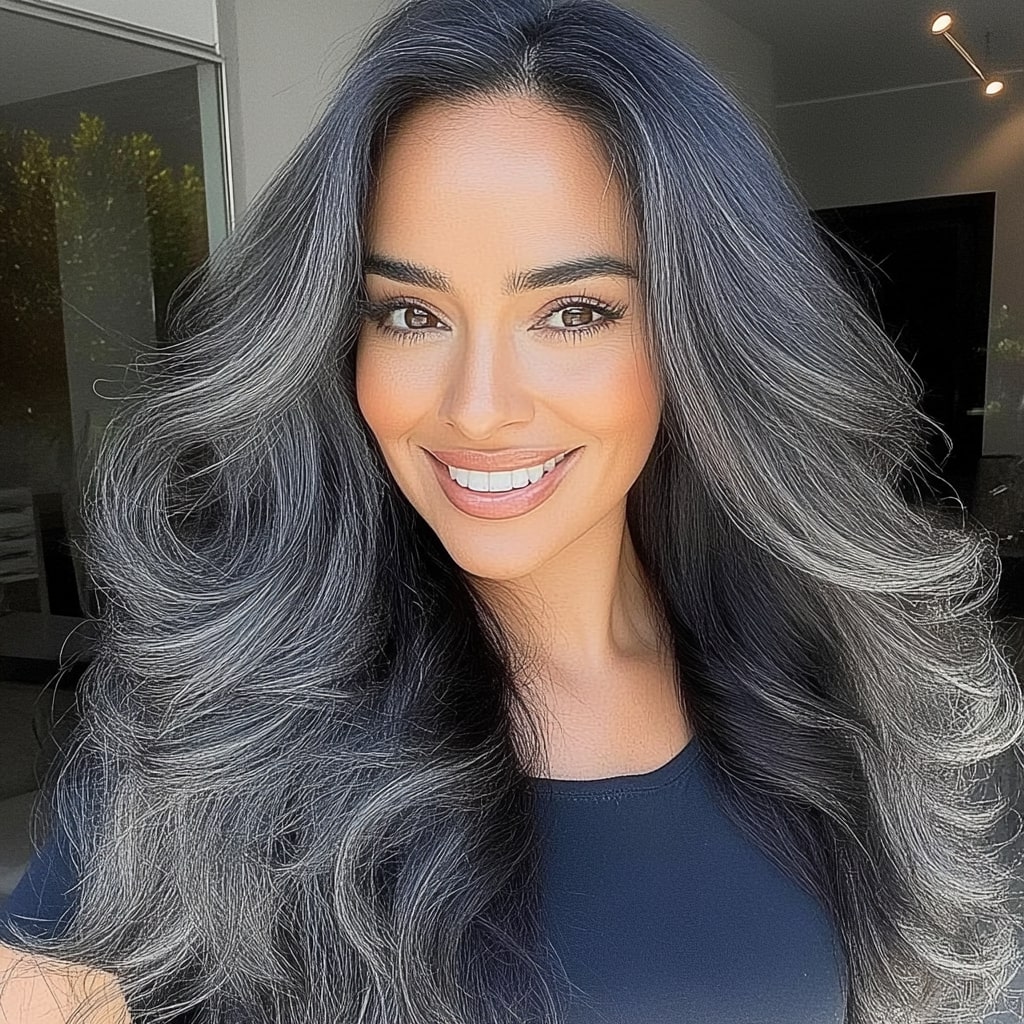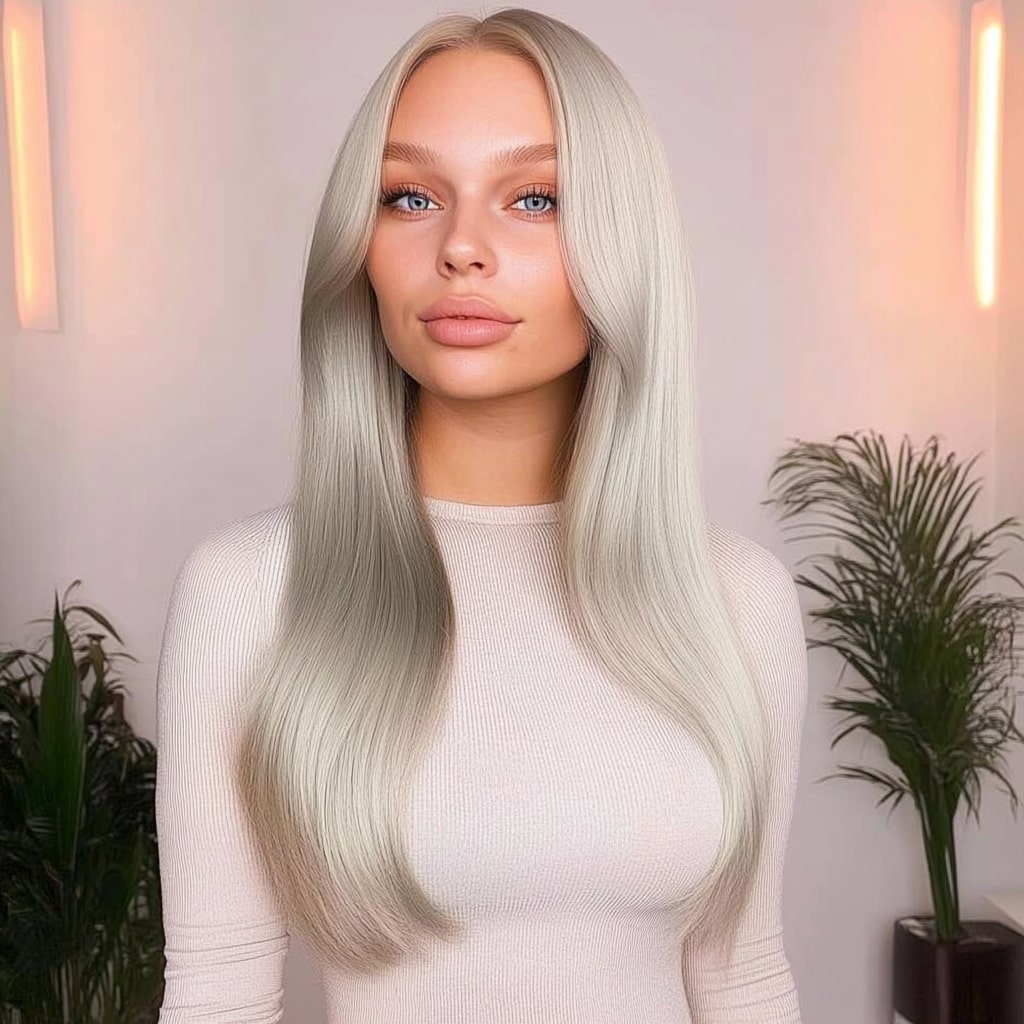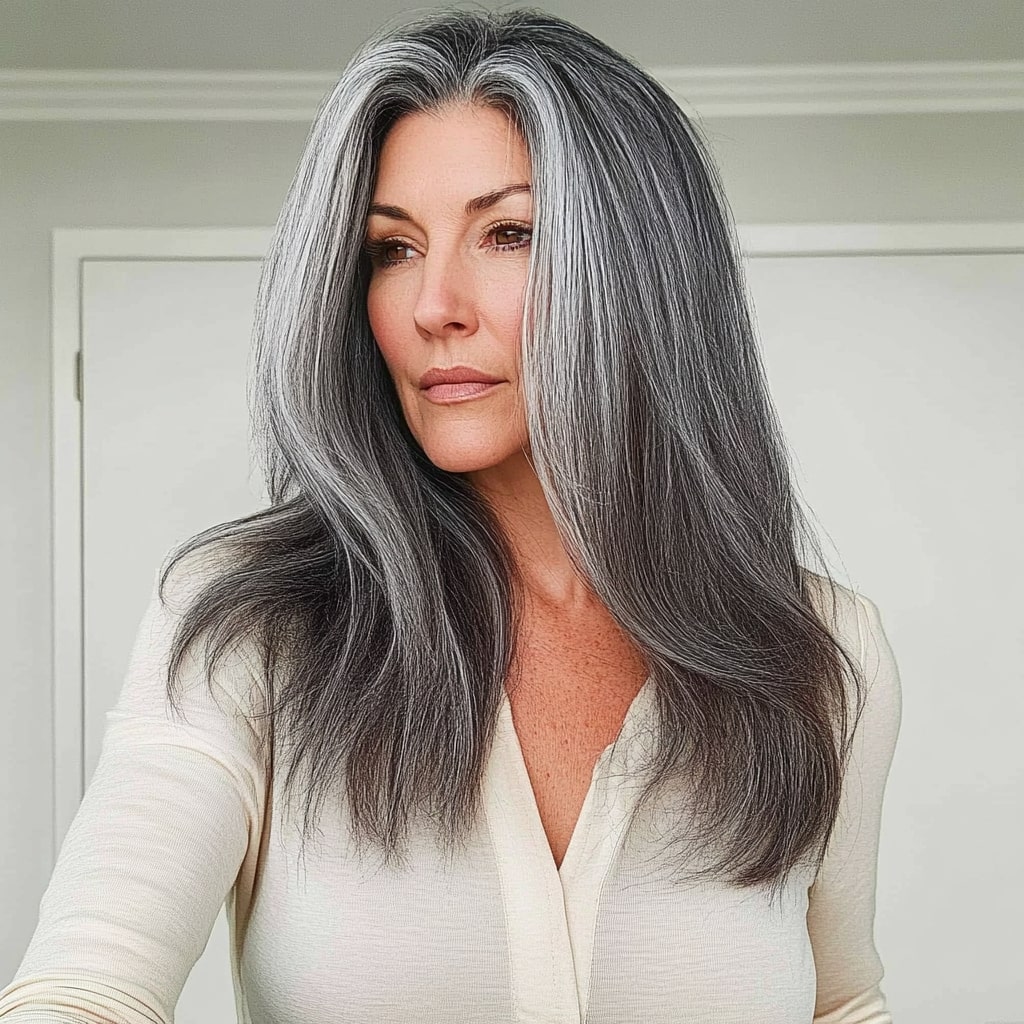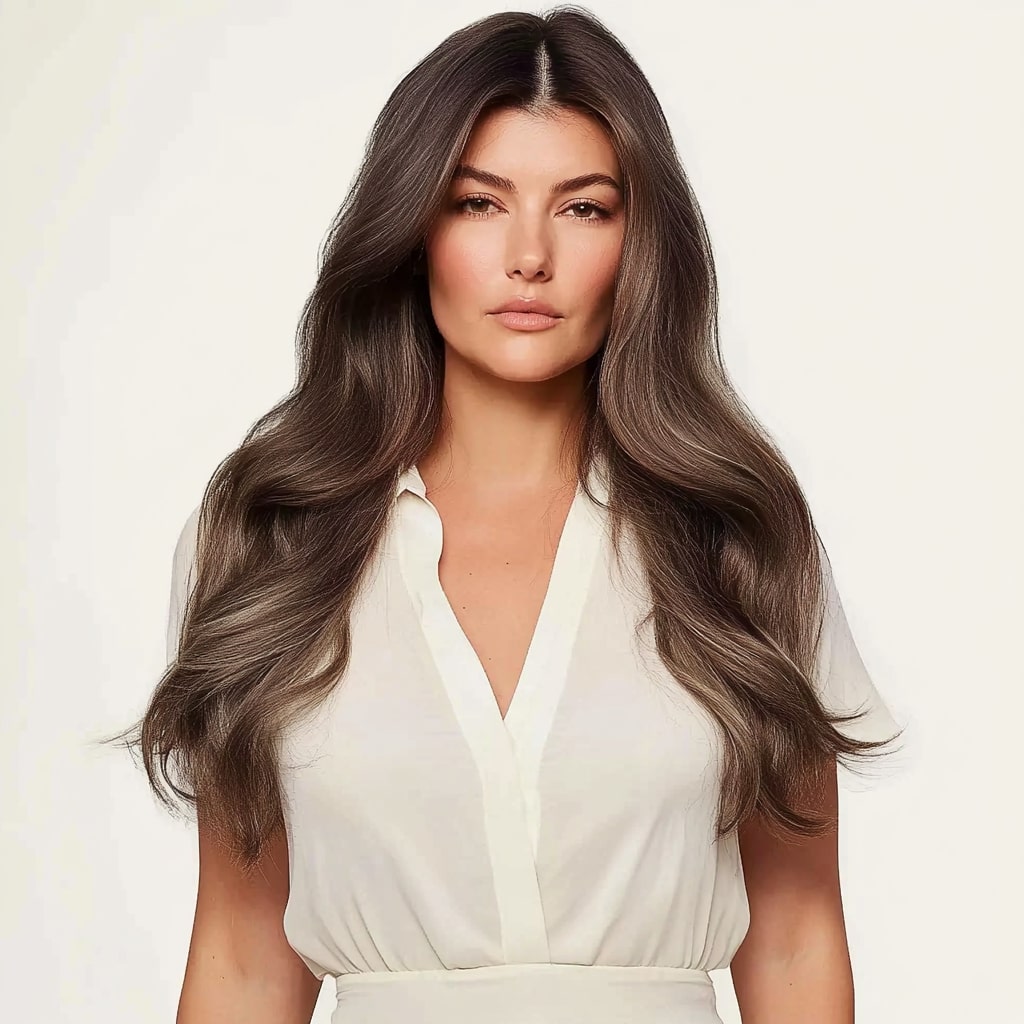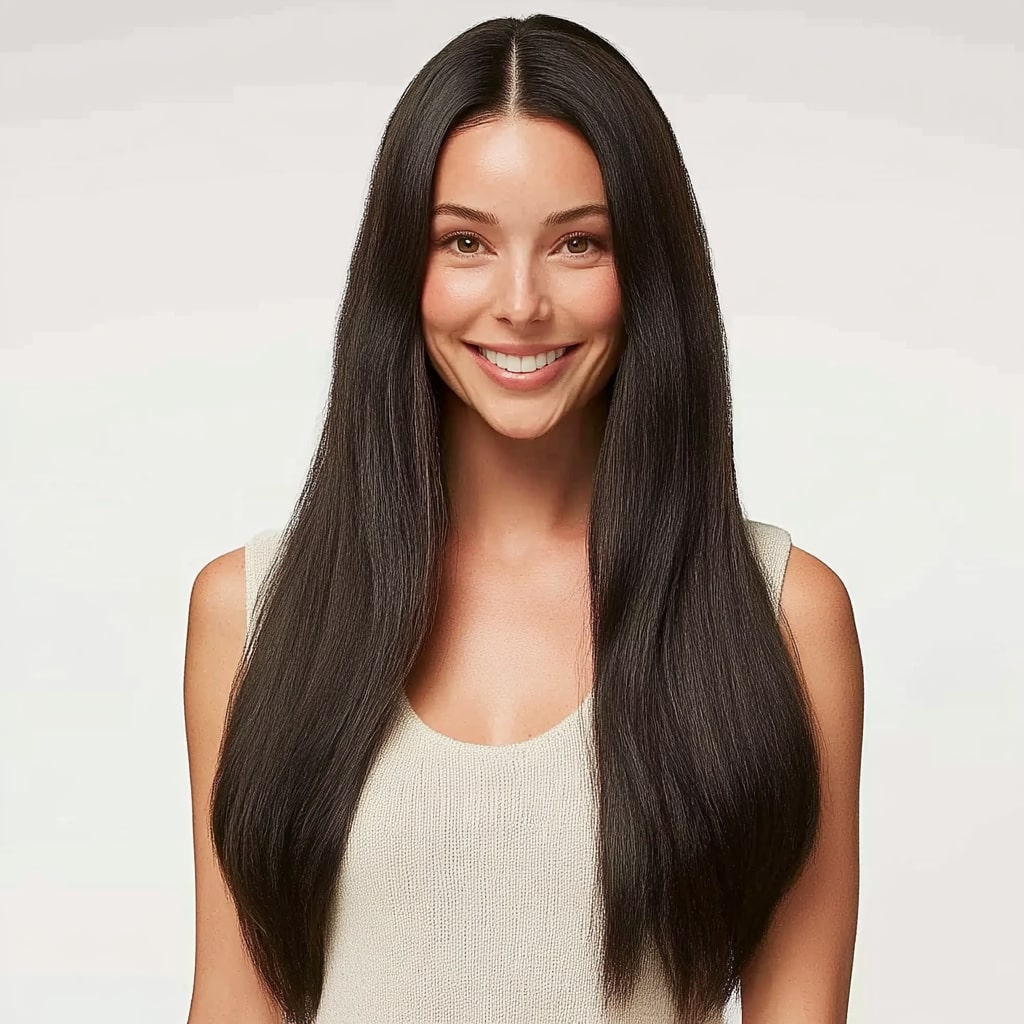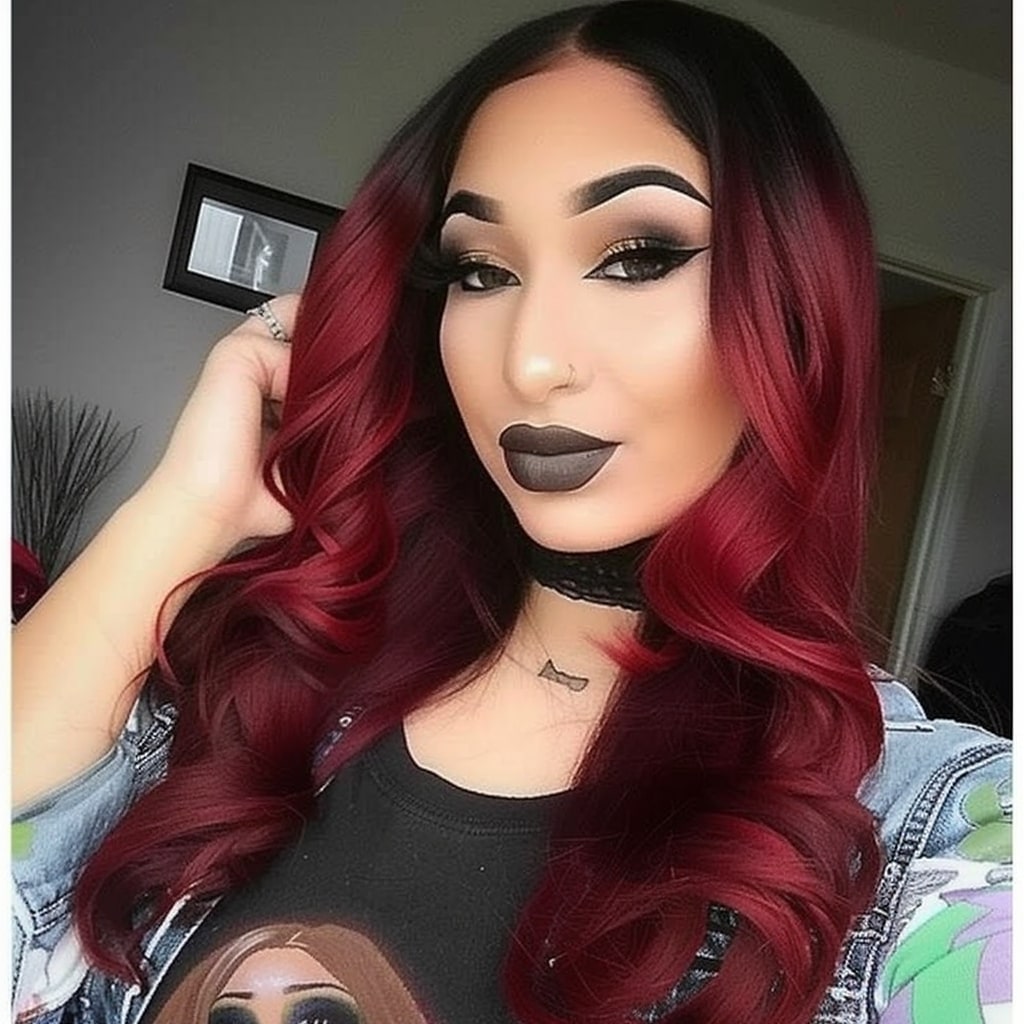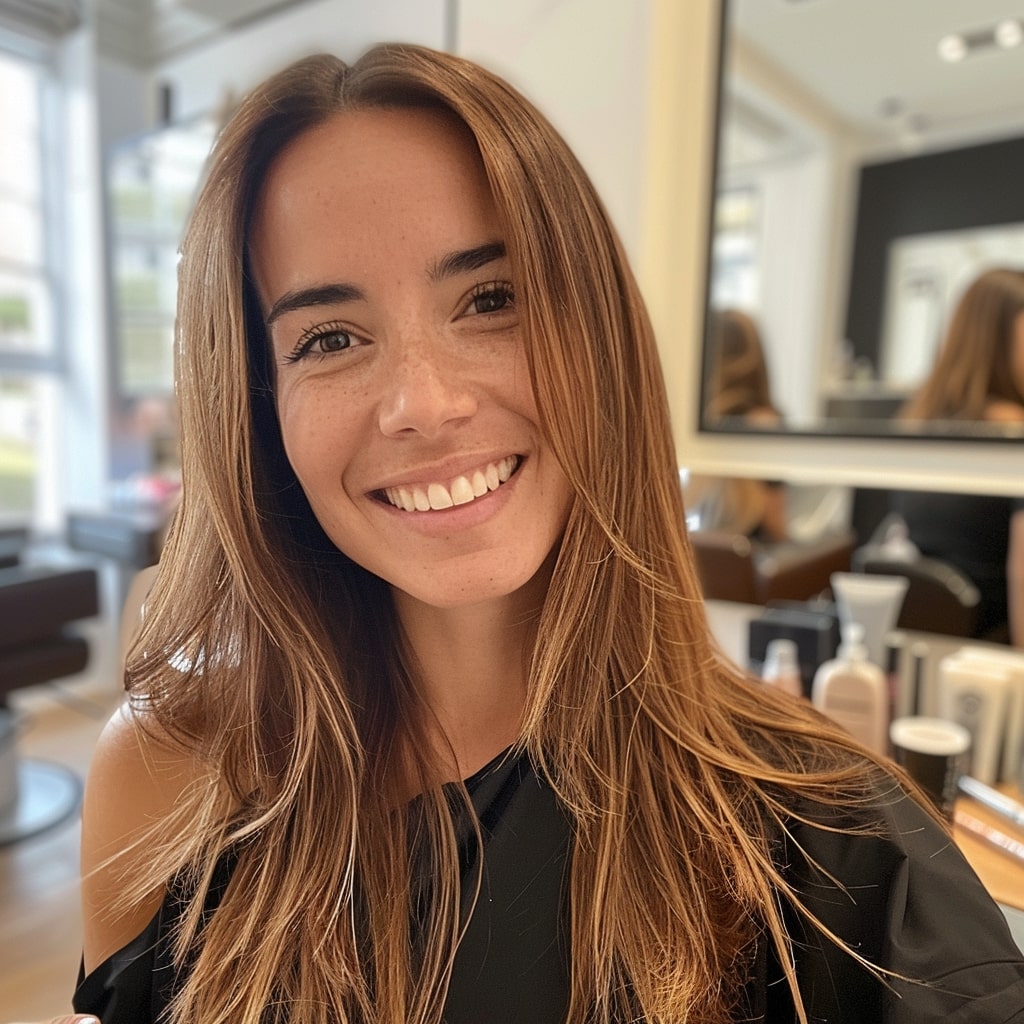Why Are My Hair Extensions So Dry? Causes and Remedies
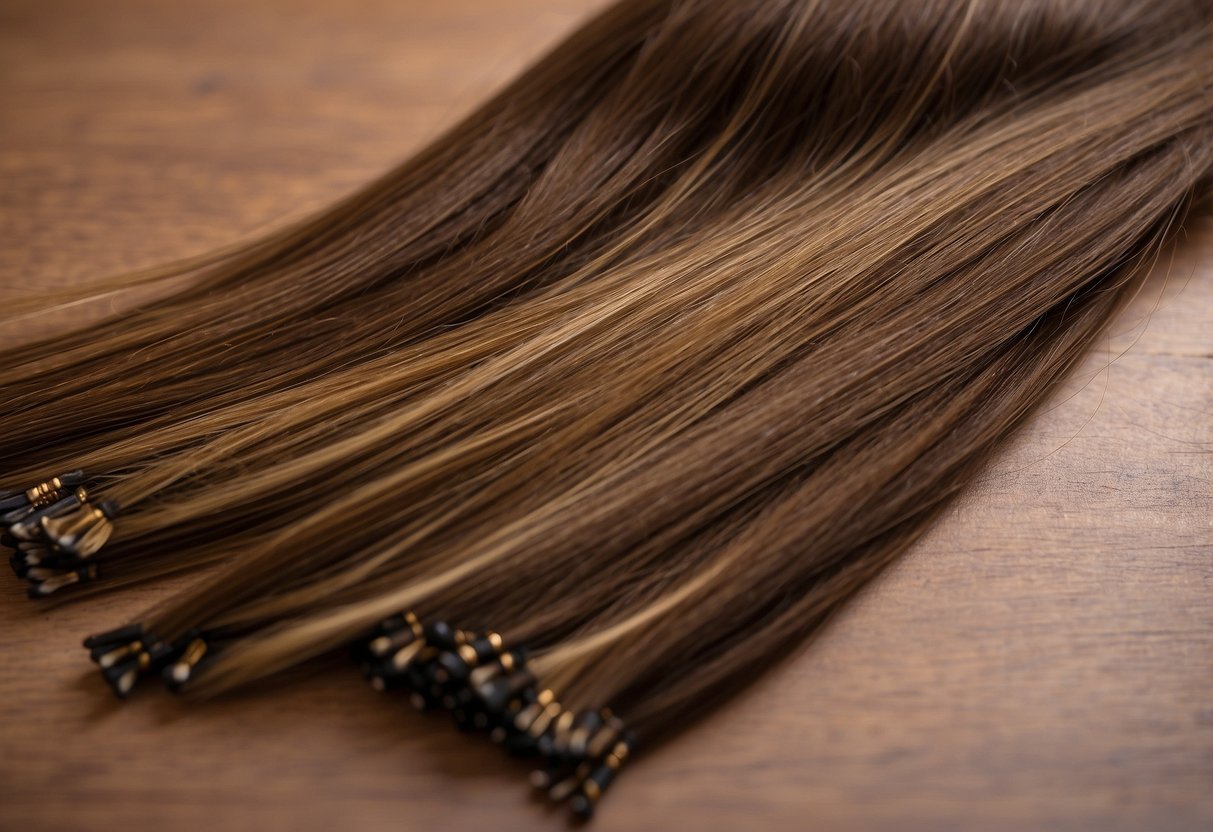
Are your hair extensions feeling dry and frizzy? This is a common problem that many face when trying to keep their extensions looking fresh and smooth. Dry hair extensions can be caused by a variety of factors, including lack of moisture, excessive heat styling, or improper care.
To address this issue, it's important to understand what might be contributing to the dryness. Moisture is crucial for both natural and synthetic hair extensions to maintain their softness and shine. Using the right products and techniques can bring your hair extensions back to life, ensuring they look and feel their best.
By taking proper care and applying suitable treatments, you can revive your hair extensions and prevent them from getting dry in the future. Keep reading to discover the best tips and tricks for maintaining your extensions and keeping them hydrated and frizz-free.
Key Takeaways
- Dry hair extensions often result from lack of moisture and improper care.
- Using appropriate products and methods can rejuvenate your extensions.
- Regular maintenance is essential for long-lasting, smooth hair extensions.
Understanding Hair Extensions
Understanding hair extensions involves knowing the different types available and the differences between natural and synthetic options. This helps in picking the best extensions and in taking proper care of them to prevent dryness.
Types of Hair Extensions
There are several types of hair extensions. Clip-in extensions are easy to attach and remove, making them ideal for temporary changes. Tape-in extensions use adhesive strips and are more permanent, lasting several weeks. Sew-in or weft extensions are braided into natural hair, requiring professional application. Micro-link extensions use small beads to link the extension with the natural hair, providing a secure hold.
Key Types:
| Extension Type | Application | Durability |
|---|---|---|
| Clip-in | Temporary | Daily |
| Tape-in | Semi-permanent | 4-8 weeks |
| Sew-in | Permanent | 6-8 weeks |
| Micro-link | Semi-permanent | 2-4 months |
Each type has its pros and cons. For instance, clip-ins are convenient for short-term use while sew-ins and tape-ins provide a more seamless, natural look.
Natural vs. Synthetic Hair Extensions
Human hair extensions can be styled with heat and dyed, offering a more natural look. Remy hair extensions are the highest quality human hair extensions, with the cuticles aligned in one direction, reducing tangling. The quality of human hair extensions greatly influences their texture and longevity.
Synthetic hair extensions, made from man-made fibres, can mimic the appearance of natural hair but do not offer the same versatility. They cannot be styled with heat or dyed, limiting styling options. Yet, they are often more affordable and easier to maintain, making them suitable for those on a budget.
Comparison Highlights:
-
Human Hair Extensions:
- Heat-stylable
- Can be dyed
- More natural appearance
- Higher quality (e.g., Remy)
-
Synthetic Hair Extensions:
- Cannot be heat-styled
- Limited dye options
- Affordable
- Easier maintenance
Choosing between natural and synthetic hair extensions depends on individual needs, desired look, and budget. Human hair extensions offer superior quality but at a higher cost, while synthetic options provide a budget-friendly alternative with less versatility.
Common Causes of Dryness in Hair Extensions
Several factors can lead to dry and frizzy hair extensions, including the use of harsh shampoos, exposure to environmental elements, and frequent heat styling or chemical treatments.
Shampoo and Harsh Chemicals
Using harsh shampoos and other products containing strong chemicals can strip the moisture from hair extensions. It's important to avoid shampoos that contain sulphates and alcohols, as these can lead to dryness.
Products that are not specifically formulated for hair extensions can also worsen the problem. Opt for sulphate-free and moisturizing shampoos to keep extensions smooth and hydrated. Additionally, ensure consistent conditioning to replace lost moisture.
Environmental Factors and Exposure
Hair extensions are particularly vulnerable to environmental factors such as sun exposure, hard water, chlorine, and sea water. Prolonged exposure to these elements can cause the hair to lose its natural oils.
To protect hair extensions, it is crucial to limit their exposure to the sun by wearing hats or using protective sprays with UV filters. In addition, rinse the hair thoroughly with fresh water after swimming in pools or the ocean to remove chlorine and salt.
Heat Styling and Chemical Treatments
Frequent use of heat styling tools and chemical treatments can greatly contribute to the dryness of hair extensions. Tools like flat irons, curling irons, and blow dryers can damage the hair cuticle, leading to frizz and dryness.
Chemical treatments such as dyeing, perming, or relaxing can strip the natural moisture from the hair. To minimize damage, use heat protectant sprays, and limit the use of high heat styling tools. When chemical treatments are necessary, seek the advice of a professional to ensure the least possible damage to the extensions.
Preventive Measures for Maintaining Moisture
Maintaining the moisture in hair extensions can be challenging, but using the right products and techniques can significantly reduce dryness. Proper care and regular treatment are essential to keep extensions looking healthy and vibrant.
Choosing the Right Hair Care Products
Selecting the right products is crucial for maintaining the moisture in hair extensions. Sulfate-free shampoos are a must as they prevent stripping natural oils from the hair. Hair extensions don't have a natural source of oil, so avoiding harsh chemicals is essential.
Deep conditioning treatments are highly recommended. Using these treatments once a week can help restore and lock in moisture. Leave-in conditioners are another excellent option for daily moisture preservation. They provide continuing hydration and protection between washes.
Natural oils, such as argan and coconut oil, can be applied to the extensions to add extra nourishment and shine. Be cautious not to overuse oils, as they can make the hair heavy and lead to buildup.
Proper Washing and Conditioning Techniques
How you wash and condition your hair extensions is as important as the products you use. Always brush the extensions gently before washing to remove any tangles. Use lukewarm water to avoid drying out the hair.
When applying shampoo, focus more on the roots and scalp rather than the extensions themselves. Gently massage the shampoo without scrubbing harshly to prevent damage.
After rinsing, apply conditioner liberally to the mid-lengths and ends of the hair, avoiding the roots. Let it sit for a few minutes before rinsing thoroughly. This helps the hair absorb nutrients and moisture better.
Pat the extensions dry with a towel instead of rubbing them. Allow them to air dry naturally whenever possible. This reduces the risk of heat damage and helps maintain the hair's moisture balance.
Daily Hair Extension Care and Management
Proper daily care of hair extensions helps keep them smooth, soft, and tangle-free while extending their lifespan. Key practices include gentle detangling, nourishing with oils or hair masks, and protecting the extensions from various types of damage.
Detangling and Brushing
Regular brushing is crucial to prevent tangling and matting. It is recommended to use a wide-toothed comb or a detangling brush. Begin at the ends and work your way up to the roots. This minimizes pulling on the extensions and your natural hair. It's essential to be gentle to avoid loosening the bonds or causing damage.
Brushing in the morning and before bed helps keep the extensions smooth. Using a silk pillowcase can reduce friction and tangling during the night.
Use of Oils and Hair Masks
Applying oils and hair masks once a week nourishes and softens the extensions. Coconut oil and argan oil are excellent choices. A hair mask with honey and natural oils can be applied to the extensions, but avoid the scalp area to prevent oily roots.
To use, apply evenly through the extensions, focusing on the ends. Leave the product in for the recommended time on the packaging, then wash out thoroughly. This helps replenish lost moisture and leaves the hair feeling smooth and healthy.
Protecting Extensions from Damage
Hair extensions need protection from heat, sun exposure, and mechanical damage. Before using any heat styling tools, always apply a heat protectant spray. Overuse of heat can lead to dryness and brittleness.
Minimize exposure to UV rays by wearing hats or using UV-protectant sprays when outdoors. Sleeping with hair in a loose braid or ponytail can prevent tangling. Using a silk pillowcase at night also reduces friction.
Avoid tight hairstyles that put stress on the extensions and use gentle hair ties. Employing these protective measures ensures that the extensions remain in good condition for longer.
Troubleshooting Common Hair Extension Issues

When dealing with hair extensions, several common issues can arise, such as frizz, dryness, and damage. Understanding how to address these problems can extend the life of your extensions and keep them looking their best.
Handling Frizzy and Damaged Extensions
Frizzy hair extensions can be a major concern. To handle frizz, begin by using a smoothing serum specifically designed for hair extensions. Applying a leave-in conditioner can also help to moisturize and soften the extensions.
For damaged extensions, especially those with split ends, regular trimming is essential. Trimming the ends ensures that the hair does not look frayed and keeps the extensions neat. Additionally, consider using a deep conditioning treatment once a week to revive dry and damaged extensions.
Dealing with Dryness After Washing
Dryness often occurs after washing the extensions. To combat this, use a moisturizing shampoo and conditioner that is sulphate-free, as these are gentler on the hair. Always air dry the extensions instead of using heat, as it reduces the risk of dryness and damage.
Applying a pre-shampoo treatment can also hydrate the hair before it goes through the washing process. After washing, apply a small amount of light oil or serum to lock in moisture without weighing down the hair.
When to Replace Hair Extensions
Knowing when to replace hair extensions is crucial for maintaining a well-groomed appearance. Signs that it's time to replace extensions include excessive frizz that no longer responds to treatments, severe matting, and significant breakage or thinning.
Extensions should typically be replaced every 3 to 6 months, depending on quality and how well they are maintained. Poor quality hair will show signs of wear and tear faster, necessitating more frequent replacements. Regular proper care can extend the durability of your hair extensions, delaying the need for new ones.
Ensuring that hair extensions are sourced from a reputable supplier can also reduce the instances of these common issues, as high-quality extensions tend to last longer and withstand environmental factors better.
Advanced Hair Extension Care Techniques
Taking care of hair extensions can be a bit more demanding than maintaining natural hair. Using heat protection, careful styling, and proper maintenance can extend the life of hair extensions.
Heat Protection and Styling Tips
Protecting hair extensions from heat damage is crucial. Before styling with a flat iron or curling wand, always apply a heat protectant spray. This not only shields the hair from heat but also locks in moisture.
Using low to medium heat settings is important too. High heat can weaken the bonds and dry out the extensions. If possible, try to air-dry the extensions after washing to maintain their condition.
Regular maintenance is key. Use an extension brush to detangle gently and avoid breakage. Incorporating products like argan oil and hot oil treatments can also help keep the extensions hydrated and shiny. This combination of techniques ensures the hair remains smooth and healthy.
Consulting Professionals for Hair Extension Health
For optimal hair extension health, seeking advice from professionals and choosing high-quality products are essential. Proper guidance can prevent issues like dryness and damage.
Visiting a Hair Stylist or Salon
Seeing a hairstylist or visiting a hair salon is crucial for maintaining hair extensions. Professionals can assess the condition of the extensions and recommend the best care practices. Regular appointments for scheduled maintenance help keep extensions tangle-free and in good condition.
A hairstylist can also ensure proper installation and removal, which prevents damage to both the extensions and natural hair. Improper fitting can lead to pulling and breakage, so a professional touch is invaluable. Additionally, they can offer tips tailored to the type of extensions, whether clip-ins or more permanent types.
Choosing High-Quality Extension Products
Selecting high-quality extension products significantly affects the longevity and appearance of the extensions. Extensions made from the best quality human hair are more durable and blend seamlessly with natural hair. They also tend to remain soft and tangle-free longer.
When selecting products, look for those specifically designed for hair extensions. This includes shampoos, conditioners, and styling products that are gentle and moisturizing. Investing in good quality clip-in hair extensions or other types ensures fewer issues with dryness and increases overall satisfaction with the extensions.
Professional recommendations for products help avoid using anything that could harm the extensions, ensuring they stay shiny and healthy.
Frequently Asked Questions
Hair extensions can sometimes become dry and frizzy due to lack of moisture, improper care, or harsh products. These questions and answers will help you better understand and maintain the health of your extensions.
What causes new hair extensions to become dry and frizzy?
New hair extensions often become dry due to factors like exposure to heat styling, lack of moisture, and not using the right products. Hair extensions, especially human hair, need regular conditioning to stay soft and manageable. Dry air and pollution can also contribute to dryness and frizz.
How do I prevent my hair extensions from drying out overnight?
To prevent dryness overnight, use a satin or silk pillowcase, which reduces friction. Braiding extensions before bed can also minimize tangling and frizz. Applying a leave-in conditioner or light oil before sleeping can help retain moisture.
What are the best methods to restore softness to hair extensions at home?
For restoring softness, try soaking the extensions in a mixture of water and a few drops of olive, coconut, or argan oil, along with some hair conditioner. Let them sit for about 10 minutes, then rinse and air dry. Using natural treatments regularly can keep them healthy and soft.
Is it possible to rejuvenate frizzy hair extensions after they've been washed?
Yes, frizzy hair extensions can be rejuvenated after washing by applying a leave-in conditioner specifically for extensions. Using a lightweight oil or serum on damp hair can help reduce frizz and add shine. Air drying is preferable to using heat tools.
How can I keep my tape-in hair extensions from becoming dry and tangled?
To keep tape-in extensions from drying out and tangling, use sulfate-free shampoos and conditioners. Apply a deep conditioning treatment weekly and avoid products with alcohol. Brushing gently with a detangling brush and avoiding excessive heat styling also helps.
Are there effective treatments for saving overly dry hair extensions?
Effective treatments for overly dry extensions include soaking them in a mix of warm water and natural oils such as coconut or argan oil, combined with a nourishing conditioner. This rehydrates the hair and restores softness. Regular treatments and proper daily care can help prevent future dryness.

 My Store Credit
My Store Credit
 Buy Again
Buy Again
